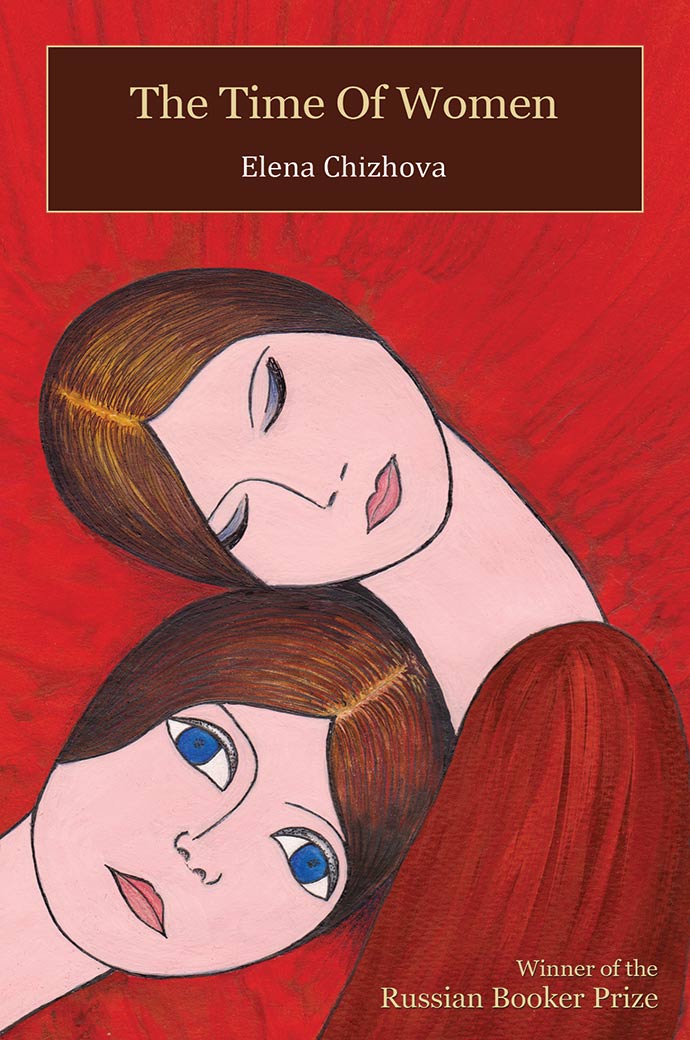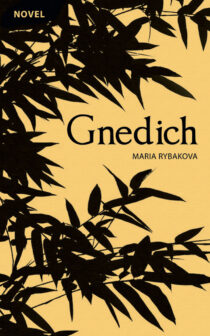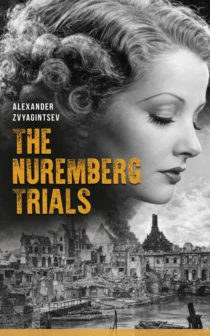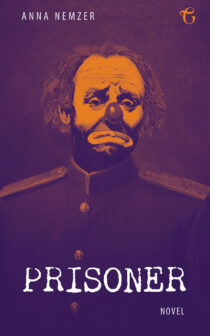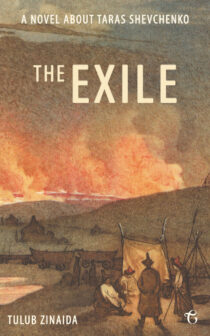The Time of Women
Price range: €9.95 through €27.25
Author: Elena Chizhova
Translators: Simon Patterson and Nina Chordas
The Russian Booker Prize – 2009
Life is not easy in the Soviet Union at mid-twentieth century, especially for a factory worker who becomes an unwed mother. But Antonina is lucky to get a room in a communal apartment that she and her little girl share with three old women. Glikeria is the daughter of former serfs. Ariadna comes from a wealthy family and speaks French. Yevdokia is illiterate and bitter. All have lost their families, all are deeply traditional, and all become “grannies” to little Suzanna. Only they secretly name her Sofia. And just as secretly they impart to her the history of her country as they experienced it: the Revolution, the early days of the Soviet Union, the blockade and starvation of World War II.
Life is not easy in the Soviet Union at mid-twentieth century, especially for a factory worker who becomes an unwed mother. But Antonina is lucky to get a room in a communal apartment that she and her little girl share with three old women. Glikeria is the daughter of former serfs. Ariadna comes from a wealthy family and speaks French. Yevdokia is illiterate and bitter. All have lost their families, all are deeply traditional, and all become “grannies” to little Suzanna. Only they secretly name her Sofia. And just as secretly they impart to her the history of her country as they experienced it: the Revolution, the early days of the Soviet Union, the blockade and starvation of World War II.
The little girl responds by drawing beautiful pictures, but she is mute. If the authorities find out she will be taken from her home and sent to an institution. When Antonina falls desperately ill, the grannies are faced with the reality of losing the little girl they love – unless a stepfather can be found before it is too late. And for that, they need a miracle.
Numerous literary studies have been conducted on various topics based on the material of the novel. Some of them are listed below:
- New Page of Petersburg text (Poetics of the novel The Time of Women by Elena Chizhova) (Russia);
- Chains of Nominative Sentences in Elena Chizhova’s novel The Time of Women (Russia);
- Dialog Speech Formation in the novel by Elena Chizhova The Time of Women (Russia);
- Reflection on the past in Elena Chizhova’s novel The Time of Women (University of Delhi, India);
- Petersburg in the prose of Elena Chizhova (Nyutochkin House and The Time of Women (Poland);
- Translation of gender peculiarities of women`s speech behaviour from Russian into English (on the material of the book The Time of Women by Elena Chizhova).
| Dimensions | N/A |
|---|---|
| Author | Elena Chizhova |
| Pages | 266 pages |
| Publication date | 31st January 2012 |
| Book Format | Hardcover, Paperback, EPUB, Kindle, PDF |
Endorsements and Review Quotes
“In this Booker winning novel, Chizhova offers a slice of that history through the revealing private narratives of a few representative women whose lives are focused on the girl who will take the women’s stories into a future they will not see. A powerful tale.” Paul Richardson, Russian Life
The Time of Women “is about the domestic culture of resistance and remembrance amongst three generations of women in Soviet Russia.” Lisa Hill, ANZ LitLovers LitBlog
“Any reader with an interest in things Russian — from the above-mentioned glimpses to the German blockade of Leningrad to the way Russians see America, and which nation really saved Europe in WWII — will find as much here to learn as to recognize.” Steve Street, Rain Taxi
“The Time of Women is a fascinating, if complex read. […] The polyphonic narrative allows us to see things from each woman’s point of view, including the grown up daughter […].” Kaggsy’s Bookish Ramblings
“Their [women’s] story is a simple one. Aside from Antonina’s ailing medical condition (she falls ill from cancer), not much happens. But it’s the ordinariness of these women’s daily drudgery—the endless queues for supplies, the hours boiling dirty rags, the constant cooking of potatoes and bland food—that comes vibrantly alive on the page. A scattered, stream-of-consciousness writing style takes some getting used to, especially at the beginning, and it’s often difficult to keep track of which character is doing the narrating or whether a conversation is spoken or merely overheard. But persistence promises hearty rewards, including a vision of a Russian past not often revisited. For Western readers unfamiliar with Russian/Soviet history, an especially dramatic read.” KIRKUS REVIEWS
“It is an earthbound and frankly emotional novel, especially in a literary scene long dominated by the cerebral trickery of postmodernism”. THE NEW YORK TIMES
“Most of these stalwart devotees are women, which is another major sign of the times. One of the most popular novels to be published in the past two years bore the symbolic title The Time of Women, and its author, the St Petersburg university professor Elena Chizhova, was catapulted to fame by winning the Russian Booker prize in 2009”. THE TELEGRAPH
“Many of the most inspiring new names, such as Elena Chizhova, are re-examining the past rather than taking on the present.” THE FINANCIAL TIMES
“Yet like other contemporary Russian texts – Viktor Pelevin’s works come to mind — The Time of Women constantly references political events, but is far from a political novel. The regime is oppressive, but so is life itself. Antonina is an abandoned single mother who gets sick with cancer; Suzanna is mute; the grandmothers are old and unwell. One of the primary questions the book addresses is how it is possible to resist oppression in any form and at the same time retain one’s humanity. Chizhova’s novel suggests that such resistance is possible”. Yelena Furman, The Los Angeles Review of Books
“You might choose to read The Time of Women because it won the Russian Booker Prize or because it was written in contemporary Russia or because it is about three generations of women finding ways to survive by supporting one another in a rather bleak world. But my recommendation would be that you read it to grapple with Chizhova’s jarring and challenging narrative and rhetorical style. And also because her struggling and verbally inhibited characters are not representative only of Russia’s tragic history but stand, also, for certain aspects of our common humanity and certain aspects of the lives even of those of us in the relatively untroubled and pampered West”. Paul Monk, THE AUSTRALIAN
“It is a richly detailed world of superstition and suspicion, in which the local agents of state power exercise a stifling and often arbitrarily applied control over individual citizens’ lives”. Gemma Nisbet, The West Australian
“There is not much mystery as to how the story will end, but the richness of both characters and atmosphere pulls the reader through a plot whose folktale motifs — ghostly brides, sleeping daughters and scheming old women — are part of a very real world of factories and dormitories haunted by war”. RUSSIA BEYOUND THE HEADLINES
“In Chizhova’s depiction, in contrast, the outside world is cruel or indifferent at best, but at home her heroines are warm, honest, and deeply care about one another. And it is probably this – as well as the poignant evocation of 1960s Soviet life – which makes it such a good read”.
MIRIAM DOBSON, PhD. Lecturer in Modern History at the University of Sheffield/ RUSSIAN HISTORY BLOG
“Through this domestic, and essentially female, business of onion-frying, laundry rotas and petty squabbles, Chizhova tells the story of 20th Century Russia – of superstition and soviet realism, factories and folklore, belief and dissidence, rule and oppression, ignorance, hope and, of course, Russia’s insatiable appetite for suffering”. MIRANDA INGRAM/ TETRADKI
“In Women’s Time Elena Chizhova doesn’t try to write a bestseller. She doesn’t try to please all her readers either. But what she does do here is try to take on silence and hush-ups and secrets and examine the oppressive, insidious effects they can have on a few discreet lives. She does it. Frustratingly. Annoyingly. But in the end, successfully”. BEARS&VODKA
“It is fascinating to learn about other cultures. It’s all told from a female perspective. You can feel Antonina’s uncertainty about her life. She wants a better life, but is afraid to form one away from her surrogate mothers. Despite not being mute, Suzanna has an obvious curiosity about life.” AS I TURN THE PAGES
“The Time of Women is a fascinating look at Soviet society.” I PREFER READING
“It is a fine story about women banding together to help one another and about life in Soviet Leningrad.” The Modern Novel
“How the people of that time, especially women, in spite of these constraints and restraints, tried to be kind, found friendship and happiness and love, is also beautifully portrayed in the book. To me, that was the central core of the book.” Vishy’s Blog
Other publications about The Time of Women:
THE MOSCOW NEWS
The Time of Women: An Emotional Journey/ EYES IN MAGAZINE
About Elena Chizhova:
Who is Who in Russia’s new writing talent/ THE TELEGRAPH
Elena Chizhova’s interview for BEAUTY AND LACE MAGAZINE
A CELEBRATION OF WOMEN FOUNDATION
Radio interviews with Elena Chizhova:
BOOKS & ARTS DAILY/ ABC RADIO NATIONAL AUSTRALIA
About The Time of Women play based on Elena Chizhova’s novel:
THE MOSCOW TIMES
Russia’s media publications:
“This book is for everyone familiar with a keen sense of memory. For those whose hearts ache and bleed, while remembering their deceased grandparents. Together with them, not only your family history passes away, but also the history of the country”.
MOSKOVSKY KOMSOMOLETS
“As if created out of the dust and ruins of the Russian ghetos and stuck together with the same restrictions the basis of the text forms a rough and ready canvass. But look closer and the forms will become so clear that the eye doesn’t register the background any longer”.
RADIO SVOBODA (RADIO LIBERTY)
“I don’t cry easily, but this book firmly put a big lump in my throat. That’s a long forgotten feeling for me”.
SERGEY GANDLEVSKY – famous Russian writer
